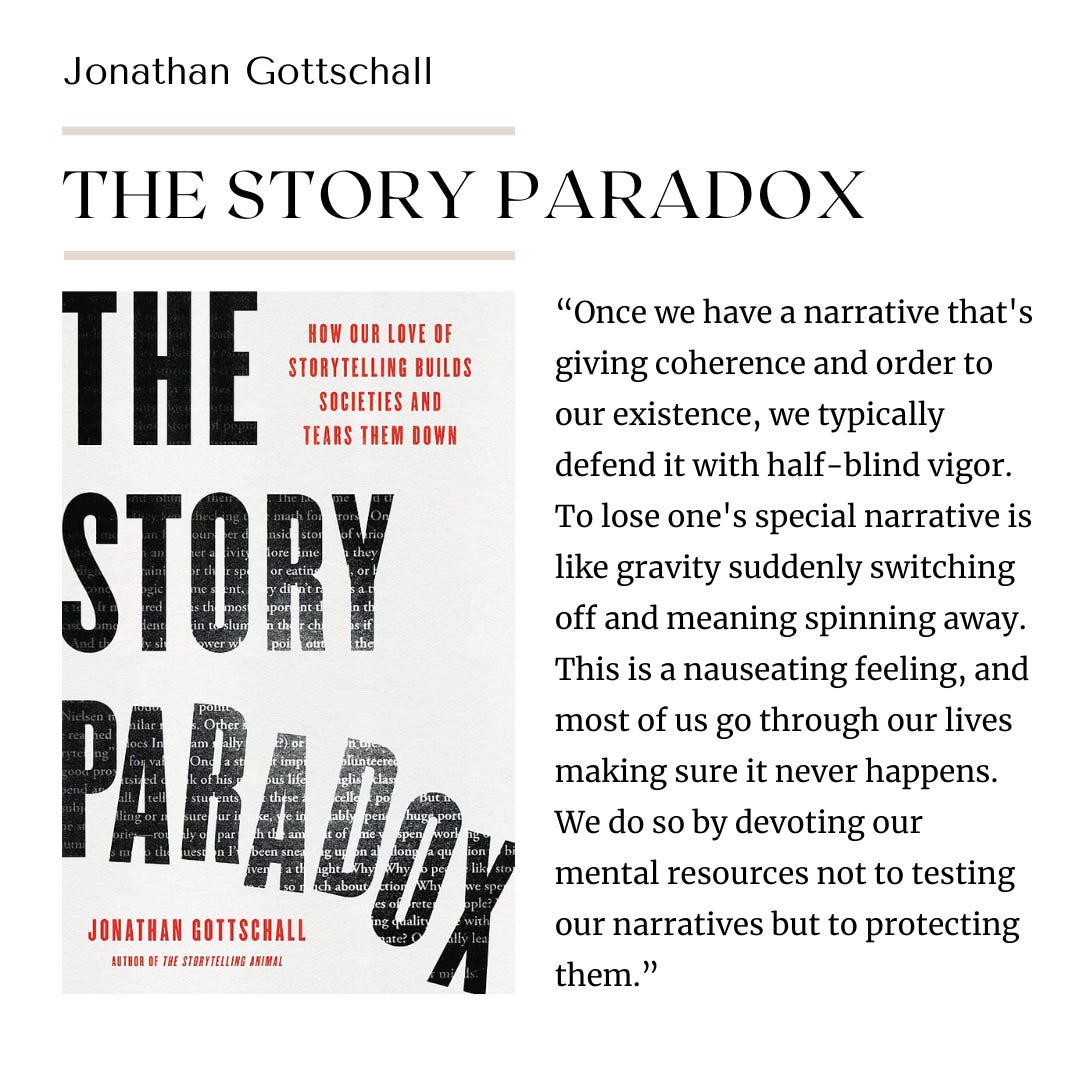Draft Four: Romania’s age of anxiety
And eight books to better understand where we are.
This is one of those letters steeped in the Romanian context, so I apologize in advance if some references don’t land. I’ve been finding it hard to think outside of what we’ve been living through for the past week, ever since round one of the presidential elections.
Today, Romanians vote in the Parliamentary elections and, technically, next Sunday we’ll have the presidential run-off. I say “technically” because we’re in the middle of a vote recount (which is not transparent) demanded by the Constitutional Court, even though none of the major candidates had any public issues with the vote, and even though it shocked everyone to see a far-right conspiracy-minded anti-European Christian nationalist top the list. (He has also made meme-makers happy).
“Romanians have plenty to be angry about” is the opening of a Politico story going through seven reasons why we ended up here. And they’re right.
So, writing this is hard.
I am angry, but simultaneously, the last thing I want is to make you angry, too.
I am sad, and it’s a kind of sadness that feels like grief.
I am overwhelmed, because I’m being bombarded with information and opinion from everywhere.
I am confused, because trying to process everything is making me dizzy.
I am anxious at the prospect of Romania going down an illiberal path.
And I am tired, tired from all of the above, but also tired of this recurring state of emergency I feel I’ve been living through my adult Romanian life. You must be, too.
*
I don’t want to convince you of anything – science says I’ll fail anyway –, so instead I’ll offer a space and time for us to sigh together. To admit to all of the above, but not because we’re ready to give up understanding or participating or voting – but because to be there for one’s community, in any way, you first have to make sure you’re OK. (Yes, the oxygen mask principle). And after you’ve more or less regrouped, remember you have to listen and understand the pain points. (Yes, the listen/learn more, speak less principle).
So, may this letter be both a chance to stop and breathe, and also a reminder of the things we should learn to as we go forth into the future. Let’s take them step by step.
We’re not special. Unfortunately, incumbent candidates and mainstream parties are hammered everywhere this year, and the assault of modern day authoritarians on the system has been going on for close to a decade. (What’s going on in Georgia for example, is heartbreaking).
Let’s not forget one narrative from Romania’s COVID-times elections was that Romania stayed on a pro-European track when others wobbled. It’s our turn now. It feels shitty when it’s you, and you feel like you should have done more, but it’s important to remember the global context.
Multiple things can be true at the same time. Yes, some Romanians love a messianic candidate with an authoritarian discourse like Călin Georgescu’s – some always have, which is why some embrace his nostalgia for Romania’s fascist movements of the 1930’s. Yes, social media algorithms have always been ripe for abuse, and TikTok’s algorithm has been put to use by clever people with an interest to disrupt elections. Yes, we can be seduced by stories. Yes, facts can’t sway us – on the contrary, dumping facts on family members you’re fighting with is like pouring gasoline straight into the flames. Yes, we can suspect Russian influence (just like in Moldova just a few weeks back). Yes, he can be a system insider more than a system outsider. The more “yes”-es we add to the list, the scarier it gets. It’d be easier if we had one narrative to explain it all away, and many are trying. But it’s more realistic that’s it’s everything everywhere all at once.
The media as we envision it is dead. Journalists didn’t see him coming was a popular refrain in the first few hours after Georgescu’s first round win. Yes, and no. Some did – weeks ago. Even years ago. But they were smallish platforms, with niche audiences. They just didn’t reach enough people. And major mainstream players give attention to candidates based on how high they show up in polls, and polls failed, too.
So be skeptical every time someone says: “no one is talking about X”. Someone certainly is – sometimes it’s content creators somewhere, sometimes it’s even journalists exposing lies and treacherous individuals.
The truer statement is “my information ecosystem didn’t receive your transmission”.
Which means some information doesn’t reach you, but it also means that expanding your information bubble or media consumption requires you to extend your trust and curiosity, which is stressful but responsible. What I can say is that independent media in Romania, once more, did as good a job as they could in a few stressful days – do trust and support Recorder, Rise Project, PressOne, Context, G4Media, HotNews, Snoop, and others like them. And so did the content creators – Politică la Minut, and Silviu Faiăr were all over my filter bubble.
This is not a clash of generations. It’s a clash of worldviews. Andrei Popoviciu wrote a short piece in the Guardian explaining his father’s vote for Georgescu, but reminding everyone that Gen Z is just as divided as their parents and grandparents:
[I was furious] when my father first told me he voted for Georgescu. But as we talked, I began to understand his perspective. He is part of the sacrificial generation, those who were in their 20s when communism fell and have since endured decades of broken promises. His vote, like those of many others, wasn’t about alignment with far-right extremism – it was a desperate cry for change.
This is not just a generational divide. Young people, too, have been drawn to Georgescu. As I scroll through social media, I see old school friends – some with university degrees, some working stable jobs – sharing posts that echo his nationalist rhetoric. Their frustrations mirror those of older voters: a rising cost of living, stagnating wages and a pervasive sense that the system is rigged against them.
Romania is in bad shape. I’m quoting from the Politico story again: “The country is grappling with a prolonged demographic decline, with millions of young workers leaving in search of higher-paying jobs abroad. Those who remain are battling a cost of living crisis and the threat of outright poverty, as well as decaying public services that undermine trust in the system.”.
Just look at these stats: food is more than 50% more expensive than before the pandemic, and cost of living is higher than the EU average. Those of us in Bucharest are more privileged, but the pain is real. Romania also has the largest number of people in the EU – 32 percent – at risk of poverty and social exclusion, and the in-country disparities are staggering.
We can keep going: lowest spending on education, lowest spending on healthcare, and an abysmal level of trust in government, parliament, and political parties. We also don’t trust one another too much – that figure has hovered between 8 and 16% for the past two decades.
People are hurting, and they don’t feel. I’ll quote from something I wrote more than a year ago, because it remains relevant. The mainstream parties and the institutions, even though they were handed a beating last Sunday, have remained largely distant and opaque throughout these past few days – they either don’t understand that care and transparency are pillars of trust, or they intentionally ignore this knowledge. This is the cycle:
People raging online. People raging in the streets.
Officials – elected or appointed – doing nothing.
Being arrogant.
Deflecting responsibility.
Never apologizing.
How can you not want to burn everything down?
How can you not paint the system as the other?
How can you not want to make them feel some of your pain? (…)
Words fail me when I talk about all that divides us and how we ourselves make the divisions worse. How we hurt each other when, supposedly, we mean well. How we feel so alone and unseen in our pain.
Because we are.
We have enough of a hard time, as people, telling each other: I see your pain. I’m sorry.
But we almost never hear this from the institutions we’re in a social contract with: the condo board, the utilities company, city hall, the hospital, the school, the ministry of whatever, your elected representative, the state agency of your choice, the police, the prime minister, the president.
Very few of them have ever said: I see your pain. I’m sorry.
*
All the signs of a democratic crisis were there and, unfortunately, it will get worse before it gets better. We’ll likely see more price spikes in 2025, and more taxation to cover a deficit and the state’s inability to collect money. The poor will have it even worse. We in Bucharest will mumble and grumble, but we’ll likely keep consuming. This will increase polarization as well as the anger and the distrust in institutions, no matter if the election crisis will be averted.
So what can we do?
Everyone must answer that question for themselves: you can turn off the news, you can retreat into your bubble, you can speak up, you can write, you can post video-takes, you can protest the fascists at the door, you can focus on your family, you can focus on your work, you can join local or national politics, you can even decide to get the hell out and join the millions that have already left.
You can also stay in the uncertainty of it all, hanging on to your values, while also understanding how a country can fail its citizens to the point they will vote anything but the status quo.
I realize now, two years into writing these weekly letters, that they have a common thread: how can we listen to one other and build things together when we don’t agree on many things, all while the fragmented information ecosystem around us – from social media, to journalism, to entertainment – keeps highlighting our differences (and profiting from them) instead of bridging them?
No matter what we choose to do, these questions will remain.
We won’t be able to fuel our lives with conflict indefinitely. It’ll bring meaning for a while, and then it’ll leave us alone, and empty. We need to be and build together way past the next election cycle. So while you ponder the future over the next few days and weeks, what I can offer are a few books that put this crisis (but not only) in perspective. They have all been mentioned and quoted here in the past, and I hope they serve as a step back, but also a recharge going forward.
Take care. Feels all the feels. Hope. Act.
SIDEDISHES
Eight books that explain how we consume information today, how stories can be exploited by bad faith actors, and how we can start listening to each other in ways that are generative.










Excellent Domnul Lupsa. Your best yet!
Thank you so much for this letter. Yes, let’s stop to breathe…
From a franco-italian who sees what’s going on in Italy and France with much sadness. And I do love all your reading suggestions !